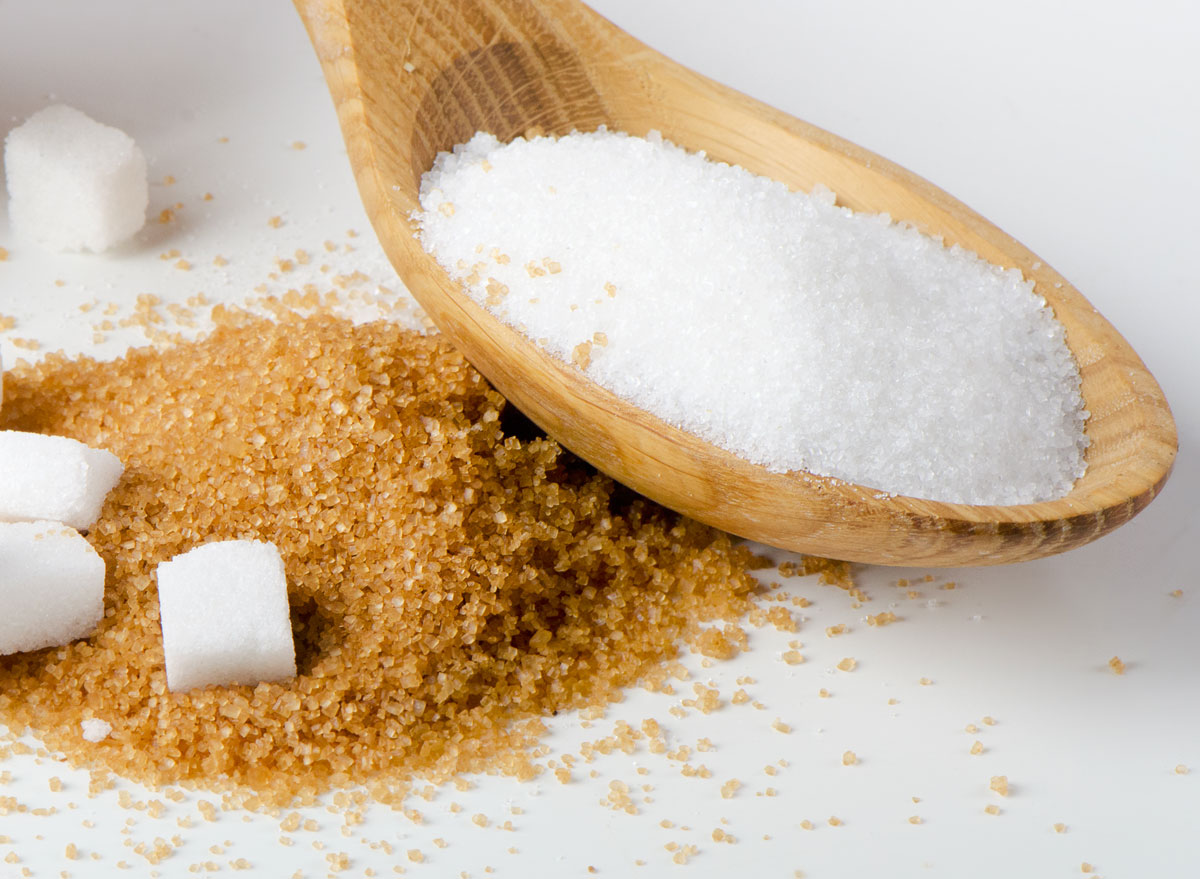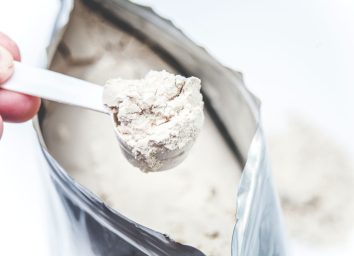Brown Sugar vs. White Sugar: What’s the Difference, and Which Is Better for You?

Whether you’re baking for a birthday or a holiday party, you’ll need quite a bit of brown or white sugar on hand. The question then becomes brown sugar vs. white sugar—which do you use? The most notable difference is the color of the sugars, but do they actually taste any different? Which pastries does each work best in? Are they actually interchangeable?
Principal chef of Hello Fresh Claudia Sidoti answers all of your questions below.
Brown sugar vs. white sugar—how are they different?
“Brown sugar is simply sugar that has molasses, which is what gives it that brown color and flavor,” says Sidoti.
The chef also adds that brown sugar inherently retains moisture, so it’s best incorporated in baked goods that are soft such as cakes, muffins, and soft chocolate chip cookies.
“Cookies made with brown sugar will be [more moist],” she says. “Brown sugar can be great for glazes and sauces, like barbecue sauce.”
There are also two different kinds of brown sugar, light and dark, both of which are used in different recipes. Light brown sugar contains about 3.5 percent molasses by weight, whereas dark molasses contains about 6.5 percent. Light brown sugar is what you’ll typically find in most recipes, and dark brown sugar is what you’d see in dishes and baked goods that have a more prominent molasses flavor. Gingerbread and spice cakes and homemade baked beans are all good examples of foods with dark brown sugar in them.
White sugar, on the other hand, is made with either beet sugar or cane sugar and is often refined.
“White sugar is best for baked goods that need rising, like mousse or soufflé. It also gives a more neutral flavor, so it’s great in fruitier pastries,” says Sidoti.
Which one is healthier?
Sugar is sugar, so there are no significant differences between brown and white sugars. According to the USDA, one teaspoon of brown sugar contains roughly 17.5 calories and the same amount of white sugar has about 16.3 calories.
While the two are nearly equivalent in nutrition, there is a marginal difference. Because brown sugar contains molasses, it’s a little bit richer in three minerals: calcium, iron, and potassium. However, it’s not a good source of either mineral because it comprises such insignificant amounts of each.
If a recipe doesn’t specify, should you use brown sugar or white sugar?
“If a recipe doesn’t specify which sugar to use, I think it’s best practice to use white sugar,” says Sidoti. “However, when swapping in white for brown, I also like increasing or adding a splash of vanilla extract to give it a little more depth of flavor.”
Hopefully this brings more clarity to the brown sugar vs. white sugar debate and what really sets the two apart!








